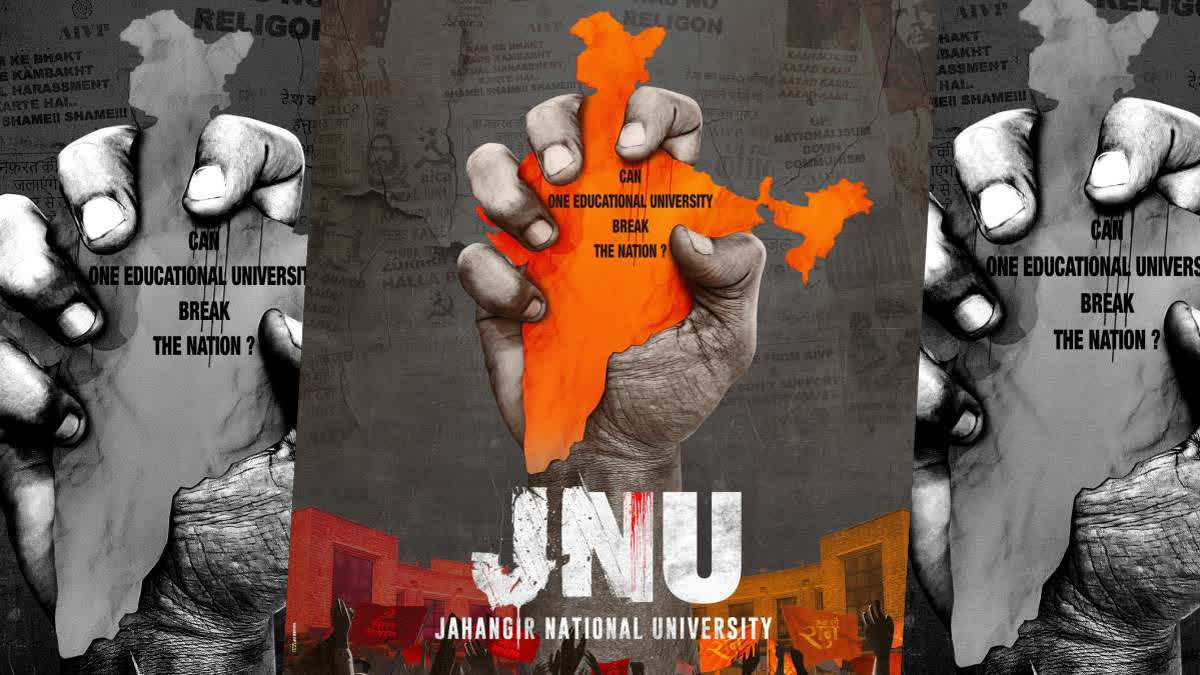Hyderabad: A new movie titled JNU: Jahangir National University has sparked a debate on social media platforms. Directed by Vinay Sharma, the film is scheduled for release in theaters on April 5th and boasts a star-studded cast including Siddharth Bodke, Urvashi Rautela, Piyush Mishra, Ravi Kishan, Vijay Raaz, Rashmi Desai, Atul Pandey, Sonnalli Seygall and more.
Urvashi Rautela, one of the lead actors, shared the film's poster on her Instagram page. The poster depicts a saffron-colored map of India with the intriguing question, "Can one educational university break the nation?" Rautela's caption hints at the movie's exploration of clashes between different ideologies within the educational system.
-
This will be nothing more than a bundle of lies! The movie will have nothing to do with the realities of #JNU, the only two purposes of this movie will be to malign the name of one of the best universities in India and to divert the attention of the people from the real issues… https://t.co/VnHJNuA1r0
— Ashish Barua आशिष बरूआ #MMT From INDIA🇮🇳 📈📊🍉 (@barua_ashish) March 12, 2024
Soon after the poster was unveiled, netizens sparked debate assuming film's title references Jawaharlal Nehru University (JNU), a renowned institution that has been embroiled in controversies in recent years. The poster was widely circulated on social media, drawing polarizing reactions from users, including industry figures like trade analysts Taran Adarsh and Komal Nahta.
While some users condemned the film as propaganda, accusing it of distorting reality and maligning the reputation of JNU, others expressed anticipation, viewing it as an opportunity to shed light on contentious issues. Despite the criticism, supporters believe the movie has the potential to challenge perspectives and spark meaningful conversations.
Scheduled for release on April 5, the film is presented by Mahakaal Movies and produced by Pratima Datta. Going by the poster, JNU: Jahangir National University promises to provoke thought and inspire reflection on the complexities of academia and national identity.
Read More:



